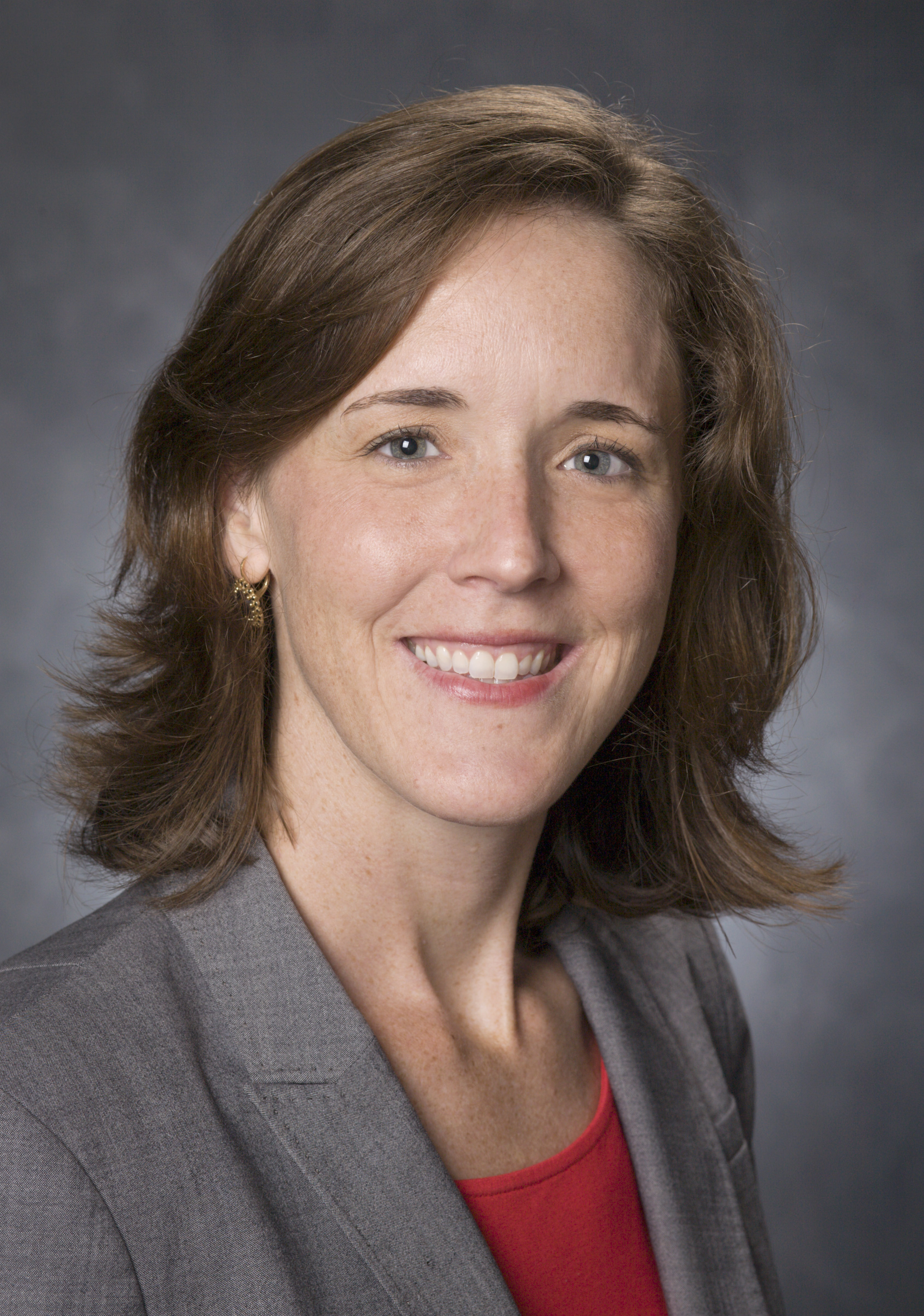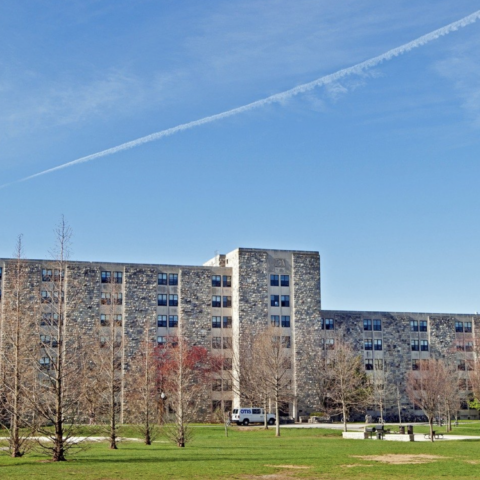By: Shalin Jyotishi

As administrators of the state’s flagship university, University of Georgia officials march to the drum of a wide array of constituencies. University leaders have to answer to an array of parties ranging from faculty and students here in Athens, to state elected and appointed officials in Atlanta, to parents, citizens and alumni throughout the state and nation. It can be a daunting task to take into account the voices of so many. Furthermore, as a public research university and a land-grant, sea-grant university, UGA shares in the responsibility of graduating a quality workforce, researching ways to improve quality of life for citizens, and bolstering economic development throughout the state through service. The Office of Governmental Relations is tasked with voicing the university’s concerns to our state officials in Atlanta.
What is your background, and how did you become UGA’s Director of State Relations?
I’m a UGA alumna. I graduated in 2000. I was actually a Grady graduate with a minor in political science. I went straight to D.C. upon graduation and worked for then-Congressman Johnny Isakson. I stayed in D.C. with him until he was elected to the U.S. Senate in 2004, when I came back to Georgia and served as his deputy state director and then state director for about three years. I ran his state operation, and through that I was able to learn a lot about the state and establish a lot of relationships around the state. Then in 2011 I took this job as director of state relations.
Why did you shift from mainstream politics to the governmental affairs and politics of higher education?
As an alumna, I have a great love for the University of Georgia. I’m certainly passionate about the work they do around the state. Because of my work with a U.S. senator and statewide office holder, I became much more familiar with UGA and Athens and also with the work the university does all over the state through its other campuses. Combining politics and policy with UGA seemed like the perfect opportunity for me.
Tell us a little about the day-to-day operations for UGA’s Director of State Relations. What roles do you and your office perform?
In the office of governmental relations we have three arms: federal, state, and local. My role as the state director is to serve as the primary liaison between UGA and officials in state government. This includes members of the Georgia General Assembly, the Governor’s office, the Board of Regents, and other state agencies. My role is to represent the institution’s priorities and to serve as UGA’s representative to our state elected and appointed officials.
Do you work with any offices across campus?
We like to think of ourselves as the service arm of the university, so we work with the Provost’s Office a lot. We have good relations with the Economic Development Office and with the new director here in Atlanta. We rely heavily on the Office of Institutional Research when we need information to share with the legislature. I met with Dr. Charles Bullock earlier today, who oversees all the interns from UGA here at the capital during the legislative session. I was on the phone yesterday with Dr. Toni Miles who is in the Institute of Gerontology. She’s working with a committee on some legislation on how our state prepares for and responds to the aging population. We really do work across campus, from the Carl Vinson Institute of Government to the Alumni Association to the President’s Office.
Georgia is home to four public research universities; Georgia Tech, Georgia State, Georgia Regents University and, of course, the University of Georgia. What challenges do you face when voicing the concerns of the university to legislators and government officials? Do you ever collaborate with governmental affairs teams at other institutions? Does UGA, in a sense, compete for a “piece of the pie” with other state universities?
I work very closely with my counterparts at the other research universities. More than 90 percent of the time we’re working together as a team to accomplish a goal – it’s important for us to collaborate. We all have alums and people in the legislature or in the Governor’s office or on the Board of Regents, and when we work together, we get a lot more done. We also receive a lot of guidance from the Board of Regents [of the University System of Georgia]. It’s really in their best interest for us all to be successful. The Georgia General Assembly allocates a lump sum to the University System of Georgia, which is distributed by the Board of Regents to the 31 institutions across the state. So in that sense, it benefits all of us to work together, especially the research universities. We can impress on the legislature the importance of funding higher education in general and showing them the value of that investment. That being said, there is a level of competition in bond funding used for construction or renovation of existing facilities. There are definitely limited resources there, and that’s where we have to state our case and measure it against the needs of other campuses. In the Fiscal Year 2015 budget that the legislature is working on right now, the Governor recommended a UGA project: the science learning center project. That would be part of the bond package over which we are competing against other campuses in the university system.
The rhetoric across the nation has really shifted towards seeing higher education as a private good rather than a state-supported, public good. Coupled with the economic downturn, many states have cut their budgets for higher education. What has that meant for UGA, and what are some points of emphasis when requesting more support from officials in Atlanta. How do we convince them to give us a larger “piece” of the shrinking pie?
I think the first thing we need to realize is that our state support is actually pretty good compared to other states across the country. I think we should recognize this and be thankful. Also, I think it’s important to realize that the economic downturn affected every area of the state government. When state revenue drops 25 percent in one year, the state budget has to be adjusted accordingly. As per the state constitution, we have to balance the budget every year. It’s important not to just whine and complain about it, but really to figure out how we can emphasize as an institution both why we’re a great investment of taxpayer dollars, which is because we put out a great product, and how we can respond to the new normal and adjust means and costs. If we can show that, then the leadership of the state is more likely to give us the funding we need to get the job done. Yesterday, President Morehead spoke in his State of the University address about how we’re freezing rates for dining halls and auxiliary services and how that will have a direct positive influence on our students. The University System Office is looking into ways to decrease the burden of the cost of textbooks on our students. Again, I think the important thing is to show our value, which can be shown by the quality of jobs our graduates get and by our graduation rates. We can show this by the quality of students coming to UGA; we can show it by the research enterprise we have and what we do around the state. It’s also important to show that we’re trying to adjust to the new normal – we have limited budgets.
What role do alumni play in governmental affairs for a university?
There are about 70 alumni in the legislature. Many of them are in very important leadership positions. The speaker of the house is an alumnus, for example. It doesn’t hurt to have people who love the institution and are familiar with the institution in those positions. We have key alumni across the state government in different positions. I rely heavily on those relationships to get advice, to ask for assistance on different projects, and to ask for introductions to people with whom I need to be working.
In your opinion, what are the most troubling issues in higher education in Georgia? What should we be paying attention to as faculty, students, staff, alumni, and parents?
I think we need to be concerned about our graduation rates. System wide, they’re not great. We have a lot of people who go to college and don’t finish. In order for our economy to grow, we need to have more college graduates. UGA has very strong five and six year graduation rates, but yesterday President Morehead stated that our four-year graduation rate needs to improve. Especially with the burden of the cost of higher education, it’s important that we get students to graduate and on time. Additionally, there is a shortage of doctors in the state. In some areas of the state, it’s a real, critical issue. One thing we’ve done to address that is create the medical partnership between UGA and Georgia Regents University. We’re graduating our first class of doctors on the UGA-GRU Health Science Campus (located in Athens) in May, and then they’ll go into their residencies. That’s another issue – do we have enough residency slots in the state to bring doctors in? You’re much more likely to settle and practice in the state where you did your residency. We’re working on expanding those programs. St. Mary’s and Athens Regional have opted in to creating residency programs.
What is the legislature’s opinion on rankings and prestige of state institutions? The focus over quality, outcome, and college rankings have really intensified over the past 20 years as competition between universities has proliferated in many ways. How does that have a role in garnering the attention of the legislature and even the public at large?
We’re one of three states that have two or more universities (UGA and Georgia Tech) in the top 20 for U.S. News & World Report. I think it’s certainly something that our state’s leadership is proud of. I think it’s important, and I think it’s equally important that we repeat as often as possible the “Best Value” rankings. As the cost of higher education becomes more of a focus point, being on those two lists shows that we provide a great education at an affordable cost and that our students are able to go out into the workforce without too much debt.


